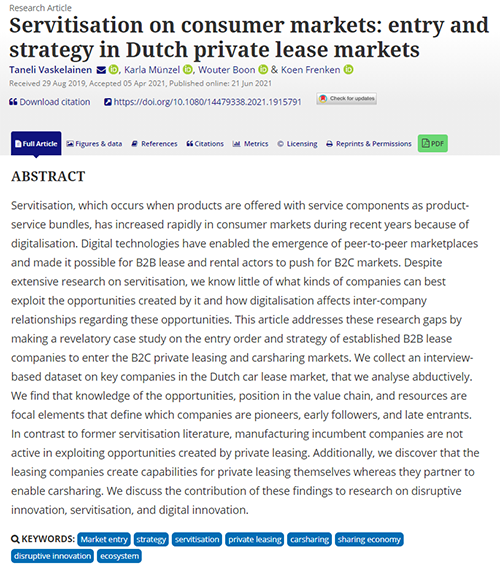Servitisation, which occurs when products are offered with service components as product-service bundles, has increased rapidly in consumer markets during recent years because of digitalisation. Digital technologies have enabled the emergence of peer-to-peer marketplaces and made it possible for B2B lease and rental actors to push for B2C markets. Despite extensive research on servitisation, we know little of what kinds of companies can best exploit the opportunities created by it and how digitalisation affects inter-company relationships regarding these opportunities. This article addresses these research gaps by making a revelatory case study on the entry order and strategy of established B2B lease companies to enter the B2C private leasing and carsharing markets. We collect an interview-based dataset on key companies in the Dutch car lease market, that we analyse abductively. We find that knowledge of the opportunities, position in the value chain, and resources are focal elements that define which companies are pioneers, early followers, and late entrants. In contrast to former servitisation literature, manufacturing incumbent companies are not active in exploiting opportunities created by private leasing. Additionally, we discover that the leasing companies create capabilities for private leasing themselves whereas they partner to enable carsharing. We discuss the contribution of these findings to research on disruptive innovation, servitisation, and digital innovation.
You can read the full article on the publisher's webpage.
